Who We Are
In June of 2020 the tribes in Maine (Mi’kmaq Nation, Houlton Band of Maliseet Indians, Passamaquoddy Tribe and Penobscot Nation) formed the Wabanaki Alliance. The Wabanaki Alliance was formed to educate people of Maine about the need for securing sovereignty of the tribes in Maine.
In 1980, the Maine Indian Claims Settlement Act was passed by Congress and ratified by the tribes and the State of Maine. The Settlement Act was supposed to be a living document that would be improved upon. Under political duress the tribes agreed to the Settlement Act but with the hope to continue improving the relationship between the State of Maine and the tribes. For forty years this has not happened.
Because of the 1980 Settlement Act the Tribes in Maine have had their sovereignty stripped from them. The promise of improving the Settlement Act has never been fulfilled. Now the Tribes in Maine are treated less than every other federally recognized tribe in America. The Wabanaki Alliance is not asking for special privileges but fairness by having the same or similar sovereignty as the more than 500 other tribes across America.
We ask all those who support the sovereignty of the Tribes in Maine to educate themselves on the issues, why they are important and join us in securing sovereignty.
Wabanaki Alliance Officers and Board
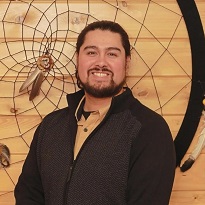
President
Osihkiyol Crofton-Macdonald,
Houlton Band of Maliseet Indians Ambassador
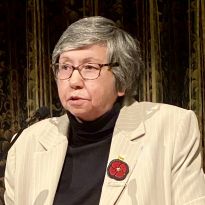
Vice President
Donna Loring,
Elder, Penobscot Nation
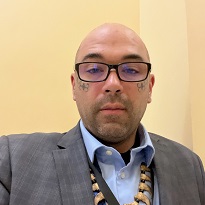
Secretary
Aaron Dana,
Passamaquoddy Tribal Representative in
the Maine House of Representatives
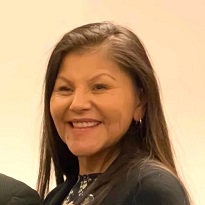
Treasurer
Rena Newell,
Citizen of the Passamaquoddy
Tribe at Sipayik
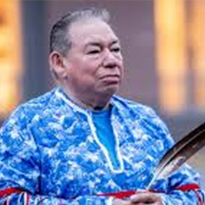
Board Member
Richard Silliboy,
Citizen of the Mi’kmaq Nation
Advisory Board Members

Advisory Board Member
Sheila McCormack,
Chief of the Mi’kmaq Nation
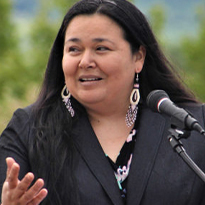
Advisory Board Member
Clarissa Sabattis,
Chief of the Houlton Band
of Maliseet Indians
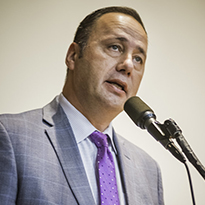
Advisory Board Member
Kirk Francis,
Chief of the Penobscot Nation
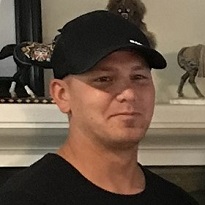
Advisory Board Member
Pos Bassett,
Chief of the Passamaquoddy
Tribe at Sipayik
Wabanaki Alliance Staff

Executive Director
Maulian Bryant
(she/her/hers)
Maulian Bryant (formally Maulian Dana) was named Executive Director of the Wabanaki Alliance in December 2024. She has been with the Alliance since its founding in 2020, serving for four years as President of the Wabanaki Alliance Board.
Bryant served as the first Penobscot Nation Tribal Ambassador from 2017-2024, having been appointed by Penobscot Nation Chief Kirk Francis. As Ambassador, Bryant acted as a representative of the Penobscot Nation and liaison for the Nation at the local, state, and federal levels of government in order to educate and advocate for policy and laws that impact and protect the Penobscot Nation’s sovereignty, culture, natural resources, and the general welfare of the Penobscot people.
Prior to her work as Ambassador, Bryant served as an elected member of the Penobscot Nation Tribal Council. She grew up on Indian Island within the Penobscot Nation’s Reservation and is the daughter of former Penobscot Nation Chief Barry Dana, who served from 2000-2004. Bryant graduated from the University of Maine in Orono with a degree in political science. In 2022, Colby College presented her with an honorary doctorate for her work on equity issues and policy.
Bryant is an outspoken advocate on the issue of derogatory mascots and imagery. Her advocacy resulted in the state of Maine enacting laws that changed the annual Columbus Day in October to Indigenous Peoples Day and prohibited public schools from using derogatory mascots. Her other passion is finding ways to strengthen and expand programs that help to preserve and teach the customs and traditions of the Penobscot people. She is a loving mother to three daughters and centers them in much of her work making the state and country a safer and more equitable place for her children and all tribal people. She believes in leading with love and making progress by finding shared humanity.

Associate Director
Monica Castellanos
(she/her/hers)
Monica Castellanos joined the Wabanaki Alliance as Associate Director in February 2025. She has been a personal and small business member of the Wabanaki Alliance Coalition since its founding in 2020 and helped organize several Alliance events for Wabanaki leaders and state legislatorst that her former small business in Hallowell hosted to build momentum for legislative priorities.
In 2018, Castellanos managed a statewide gubernatorial campaign prominently featuring support for tribal sovereignty and other Wabanaki priorities. In terms of statewide political experience, Castellanos is one of a few people with experience organizing and running Congressional campaigns in both congressional districts, as well as for statewide office. She is an experienced strategist, communicator, organizer, and fundraiser.
Castellanos was raised near the Kennebec River in a family that worked in the mills and the woods. Her own first work was in conservation after having been admonished throughout her childhood not to “go anywhere near that river” by her mother because of pollution.
In her off time, she enjoys exploring the outdoors, art, live music, and has a lifelong love of animals.

Communications and Community Engagement Coordinator
Sage Phillips
(she/her/hers)
Sage Phillips is a citizen of the Penobscot Nation and proud Wabanaki woman. She was recently named the first ever Communications and Community Engagement Coordinator with the Wabanaki Alliance after previously serving in two fellowships with the organization in the Fall of 2025 and Summer of 2023.
A graduate of the University of Connecticut with a bachelor’s degree in political science and human rights and a master’s degree in human rights with a focus on Indigenous education rights, Sage has garnered national attention and praise for her leadership skills and passion for working for tribal issues. She was named a 2021 Truman and Udall Scholar, a 2024 Champion for Change Fellow, and recently served as the Vice Chair of the Center for Native American Youth’s Youth Advisory Board.
While a leader in her own right, Sage also brings a depth of family experience and perspective to her work with tribal rights and advocacy. She is the granddaughter of Reuben “Butch” Phillips who made his journey to the ancestors this summer after a long life of service to the Penobscot Nation and the Wabanaki Confederacy as an elected official, cultural leader, and foundational figure in the tribe’s history and identity.
She strives to carry on his legacy of leadership through working with youth who are excited about policy, governance, and sovereignty. As such, she joins Panawahpskek citizen Kaya Lolar in co-leading the Wabanaki Policy Youth Initiative, the first of its kind that teaches Wabanaki and non-Wabanaki youth about policy, advocacy, and tribal-state relations.
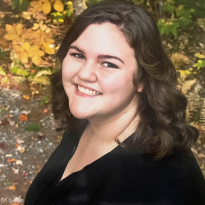
Intern
Keely Becker
(she/her/hers)
Keely Becker joined the Wabanaki Alliance in September as an Intern. Keely, a citizen of the Penobscot Nation, is an undergraduate in the University of Maine Orono, where she has achieved praise and encouragement from her professors in the social work program who highly recommended her for this internship. Keely brings to her work her growing expertise in her field as well as her dedication to her Wabanaki heritage and people.
A first generation descendant of the Penobscot Nation, Keely is the granddaughter of the late Fred Becker, a long time leader in the tribe’s fire department as well as a beloved member of the community. He is remembered as a kind and thoughtful person who cherished his Penobscot culture and community; and we are so thankful we get to work with Keely in honor of his lasting contributions.
Keely will work closely with Wabanaki Alliance Director Maulian Bryant, Associate Director Monica Castellanos, and the board of directors on a number of projects, including tracking priority legislation, communications, fundraising, and outreach.
